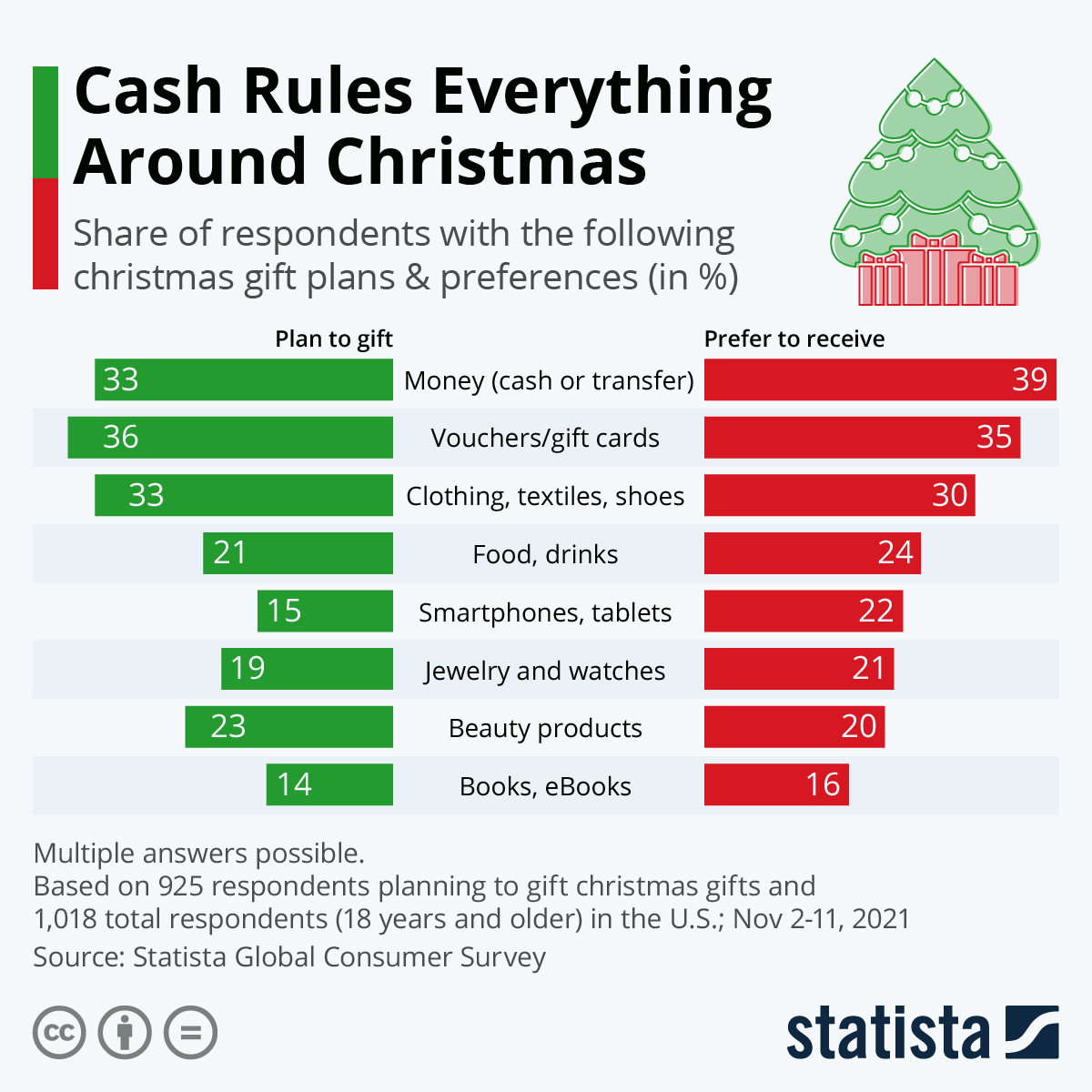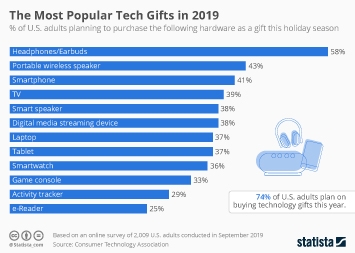While so-called "shopping holidays" like Cyber Monday and Black Friday have become synonymous with sales at big online retailers like Amazon and are mostly focused on consumer electronics, a majority of these products don't even make the top 8 when it comes to this year's Christmas gift preferences. As our chart based on data from our Statista Global Consumer Survey shows, festive classics still dominate the ranking this year.
For example, a third of U.S. respondents plan to give the gift of cold, hard cash or clothing items like the often ridiculed socks or ties, while 36 percent are looking to dole out vouchers or gift cards for Christmas. These three categories also dominate the preferences of the people potentially receiving gifts, with 39 percent answering they'd like to get some money to spend however they like. The first electronics items on the list are smartphones and tablets, with 15 percent of respondents planning to gift them while 22 percent hope to receive them. Participants favoring a one-way connection to the written word either on paper or via screen account for about 15 percent, on the gifting as well as on the preferential side.
The origin of Black Friday can be found in the 1960s when police used it to describe the heavy foot and car traffic in Philadelphia the day after thanksgiving and the corresponding start of the Christmas shopping season. The term itself didn't gain traction until the 1980s in the U.S. and is now mostly used in conjunction with Cyber Monday, a term coined in 2005 by Ellen Davis of the National Retail Federation and not, as many assume, by online retail giant Amazon. The company still draws the most criticism in conjunction with its Cyber Week offers though, with workers around the globe protesting working conditions at Jeff Bezos' company under the moniker "Make Amazon Pay" on last year's Black Friday.





















